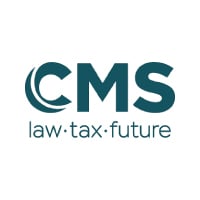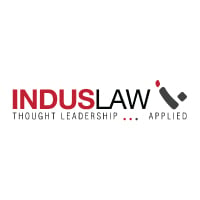

General counsel | Narotam Sekhsaria Family Office






Nekzad Dhunjibhoy
General counsel | Narotam Sekhsaria Family Office
Career Biography
Nekzad R. Dhunjibhoy is the General Counsel at the Narotam Sekhsaria Family Office, a group of companies owned and controlled by the Narotam Sekhsaria family (NSFO). With over 18 years of work experience, Dhunjibhoy looks after all of NSFO’s legal affairs. This includes supporting NSFO’s business teams on corporate matters, M&A/ VC/ private equity transactions, finance and lending transactions, real estate transactions, commodities transactions, regulatory and litigious matters; preparing and updating various internal policies and protocols; working with investee companies and NGOs supported by NSFO on their legal matters, advising on internal restructurings; engaging and managing external legal counsel, etc. As such, Dhunjibhoy is a part of NSFO’s senior leadership and serves as an executive and non-executive director on the boards of various NSFO entities. Dhunjibhoy is also a member of Salaam Bombay Foundation and Ambuja Cement Foundation – two non-profit organisations supported by NSFO. Dhunjibhoy has worked with NSFO for over five years. Prior to taking on an in-house role with NSFO, Dhunjibhoy was a Corporate/ M&A specialist at the law firm of Talwar Thakore & Associates (TT&A) for 12 years since its inception. Prior to joining TT&A, Nekzad worked at Crawford Bayley & Co. where he started his career in law.
How do you motivate and manage the other members of your legal team well?
Until recently, our legal team was a team of one. It has doubled in size only earlier this year and we are now a team of two. So, there may not be a lot to say here, but if I were to simplify the philosophy in dealing with people I would just say “treat people the way you would want to be treated”. This philosophy has worked for me while dealing with my colleague in the legal team, members of other business teams, investee companies, external counsel, opposing counsel, counterparties etc. If I had to elaborate I would try to include the following principles in my interactions with colleagues:
Are the effects of AI on the legal world overplayed, or underplayed?
The effects of AI on the legal world are complex, and whether they are overplayed or underplayed depends on the perspective and specific context.
Some may argue that AI’s current capabilities are overhyped because it cannot replace the nuanced judgment, empathy, and ethical decision-making that human lawyers and judges bring to the legal system. Law often involves grey areas, where precedent, morals, ethics and societal values must be balanced – these are areas where AI might struggle. AI may primarily be effective in repetitive or document-heavy tasks like contract review, legal research or sifting through voluminous data dumps. In complex litigation, strategy, or negotiations, and trial work, or even VC/ PE/ M&A transactions and negotiations its utility may be far less transformative, so it may be premature to think that AI will “replace” lawyers soon.
On the other hand, AI is already revolutionizing legal workflows in terms of speed, accuracy, and cost-effectiveness. By automating time-consuming tasks, it allows lawyers to focus on higher-level work. For example, AI-driven tools for predictive contract generation can significantly increase efficiency and minimize errors to create a first draft. Automated legal advice, self-help tools, and AI-powered platforms for dispute resolution or advice on policies or procedures could increase access to legal advice for individuals who cannot afford traditional legal representation. Also, AI’s ability to analyse vast amounts of legal data could lead to faster informed decision-making – for example, in case of voluminous due diligences, review of title records, etc. Lastly, in theory, AI together with blockchain technology could play a role in standardising land/ property title record-keeping in future.
The effects of AI are still evolving, and the legal fraternity may be slower to adopt change. While technology will likely augment many aspects of legal practice, it may not be advanced enough as yet to fully replicate the human elements crucial to the practice of law. While the impact of AI could likely be significant in the long run, we are, in my view, still a few Terminator sequels away before Skynet takes over the courtroom.
Amusingly, some of this answer was written with the help of AI.